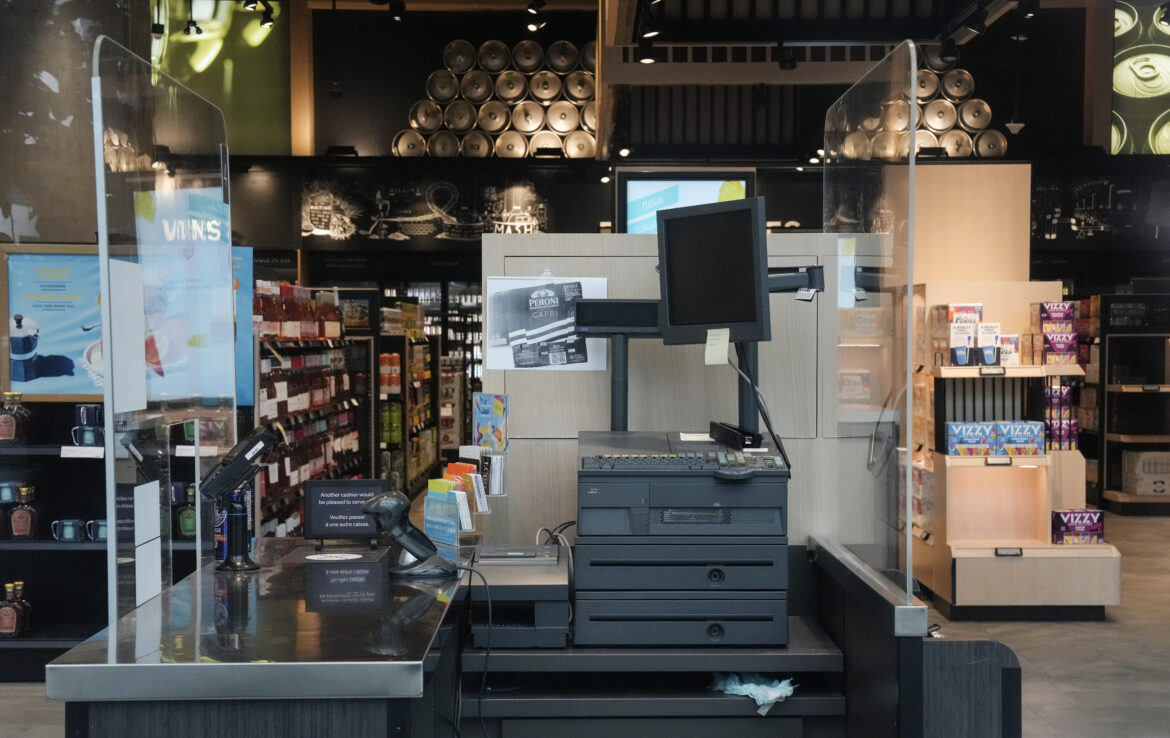Ontario’s main liquor retailer has a bright future, Premier Doug Ford said Monday as thousands of employees returned to work after a two-week strike.
The Liquor Control Board of Ontario said its stores will be open for business on Tuesday.
“I have confidence in the LCBO,” Ford said at a news conference in Kitchener, Ont.
“They meet the first three thresholds: great quality, great people serving you and at a competitive price, so we’re going to keep moving forward on it.”
He also said the LCBO makes most of its money as the primary alcohol wholesaler in the province rather than through its retail stores.
“The fact is, per capita, we make the least amount of money in the entire country to the exception of P.E.I when it comes to alcohol sales,” he said.
Ford’s previous plan was to get beer, wine and ready-to-drink cocktails in convenience stores and all grocery stores by 2026, completing a 2018 election campaign promise. But in May he announced that would instead happen this year, capping speculation of an early election that Ford did not outright deny.
Convenience stores will be allowed to sell beer, wine and coolers starting Sept. 5 while newly licensed grocery stores can do so starting Oct. 31.
An “early implementation agreement” with The Beer Store involves the province paying the company up to $225 million to help it keep stores open and workers employed. The province is also giving brewers a rebate on an LCBO fee that normally brings in $45 million a year, and it is giving retailers a 10 per cent wholesale discount.
The Ontario Public Service Employees Union said it faced an existential crisis with Ford’s plan to open up the alcohol market.
The union representing the LCBO workers had said it believed Ford’s plan to expand alcohol sales to convenience and grocery stores would threaten union jobs and the public revenue the LCBO provides to the province.
The union said the sticking point was Ford’s plan to allow convenience and grocery stores to sell ready-to-drink cocktails, the fastest growing market within alcohol sales in the province. It was seeking job security, wage increases and better benefits.
Ford admitted ready-to-drink cocktails are fast sellers and make up about nine per cent of the LCBO’s sales.
“They can’t even keep ready-to-drink on the shelves, so we can see that market growing within the LCBO,” he said.
Ford sped up his alcohol liberalization plans after the strike began on July 5, allowing grocery stores already licensed to sell beer and wine to also sell ready-to-drink cocktail beverages as of Thursday last week.
LCBO workers ratified on Sunday a new deal that includes an eight per cent wage increase over three years, the conversion of about 1,000 casual employees to permanent part-time positions and no store closures over the course of the agreement.
The ratification came after the deal was up in the air on Friday, after both OPSEU and the LCBO announced a tentative agreement had been reached but the union said the strike would continue after the employer refused to sign a return-to-work protocol.
The LCBO fired back by saying that the union had made new monetary demands after a deal was reached. OPSEU president JP Hornick said on Friday that part of the union’s return-to-work proposals included seeking to have striking workers compensated.
Ford said he had never heard of such a thing after an agreement was reached.
“Imagine if that’s taking your tax dollars for paying people that weren’t working, it’s absolutely crazy,” he said.
The union leadership “came to their senses and we got a deal signed,” he said.
Ford said he spoke to more than 500 LCBO workers during the strike, in addition to the usual flood of texts and calls he receives from Ontarians.
“But as many people as I talked to, I had as many people call me up: ‘Get rid of the LCBO. We don’t need them, put them in retail,'” Ford said.
“I just I don’t believe that, I believe in supporting the 9,000 hard-working people.”






